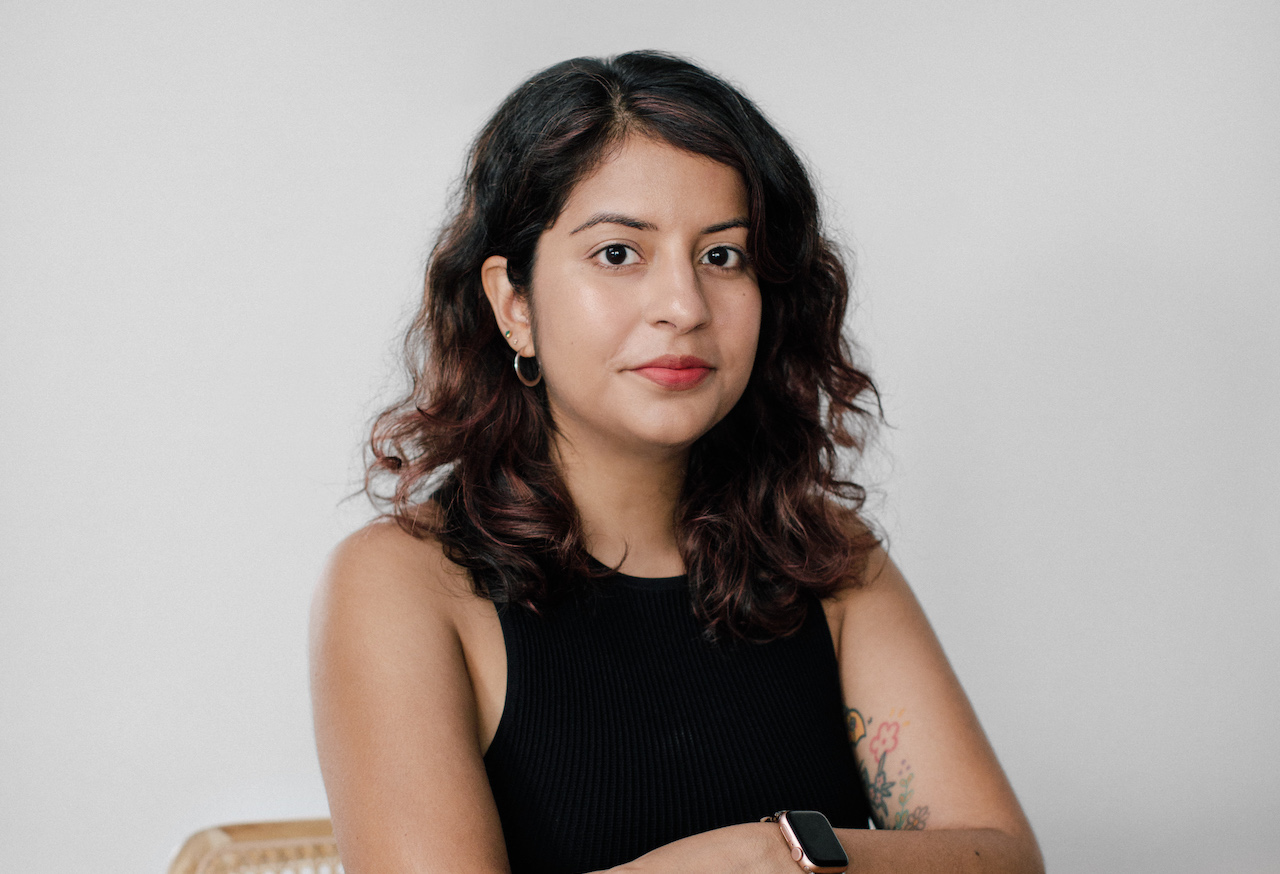Top image: Juliana Tan, courtesy of Shibani Mahtani
On 5th July 2023, The Washington Post published ‘In Singapore, loud echoes of Beijing’s positions generate anxiety’. Written by Singaporean journalist Shibani Mahtani, it alleged that local Chinese daily Lianhe Zaobao “now routinely echoes some of Beijing’s most strident falsehoods” and “has been running regular opinion columns since 2016 from at least two [Chinese Communist Party] officials without noting their party affiliation”.
The article argued this was a symptom of more extensive efforts by China to influence Singapore’s Chinese population.
It sparked immediate (and anxious) reactions. Lianhe Zaobao rebutted that they take in “Chinese and Western viewpoints while preserving [their] unique stance and independence”. Lui Tuck Yew, Singapore’s Ambassador to the US, published a letter saying the article “wrongly suggests that Lianhe Zaobao […] echoes Beijing’s propaganda” and that the article was “misguided for American news outlets to expect Zaobao to resemble The Washington Post or for Singapore to follow either the US or China”.
Prime Minister-in-waiting Lawrence Wong briefly discussed the article during his US trip, affirming that Singapore is vigilant about external influences, including “Western liberal ideals”.
“To be candid, there is no shortage of criticism about Singapore in the Western media, no shortage of commentaries and articles highlighting the shortcomings in our system and asking us to be more like Western liberal ideals,” DPM Wong clarifies.
Naturally, it was the first thing I asked her about.
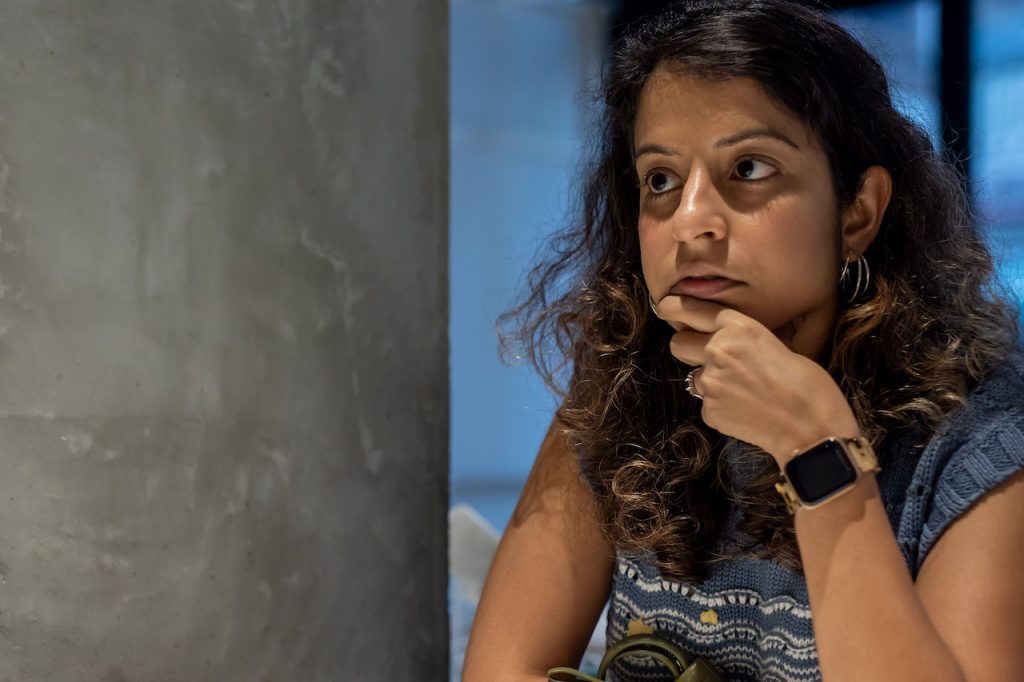
On Lianhe Zaobao
As expected of someone who interviews public figures for a living, Shibani’s relaxed manner instantly puts you at ease. Her speech—liberally peppered with “you know” and “right?”—draws you into the same wavelength.
Learned from years of journalism, the 35-year-old balances her claims with caveats. Her neutral-sounding English is flawless, void of the full ‘R’s characterising American accents or the poshness of British accents. In her own words, she speaks like “someone very privileged to have experienced different cultures, societies, and ways of life”.
When I bring up the Lianhe Zaobao kerfuffle, her demeanour turns serious.
“Nowhere did I advocate for Singaporean media to be like Western media,” she begins.
“The story didn’t argue from a US-China perspective at all, honestly. It was an investigation into the discourses and the narratives around Chinese-ness.”
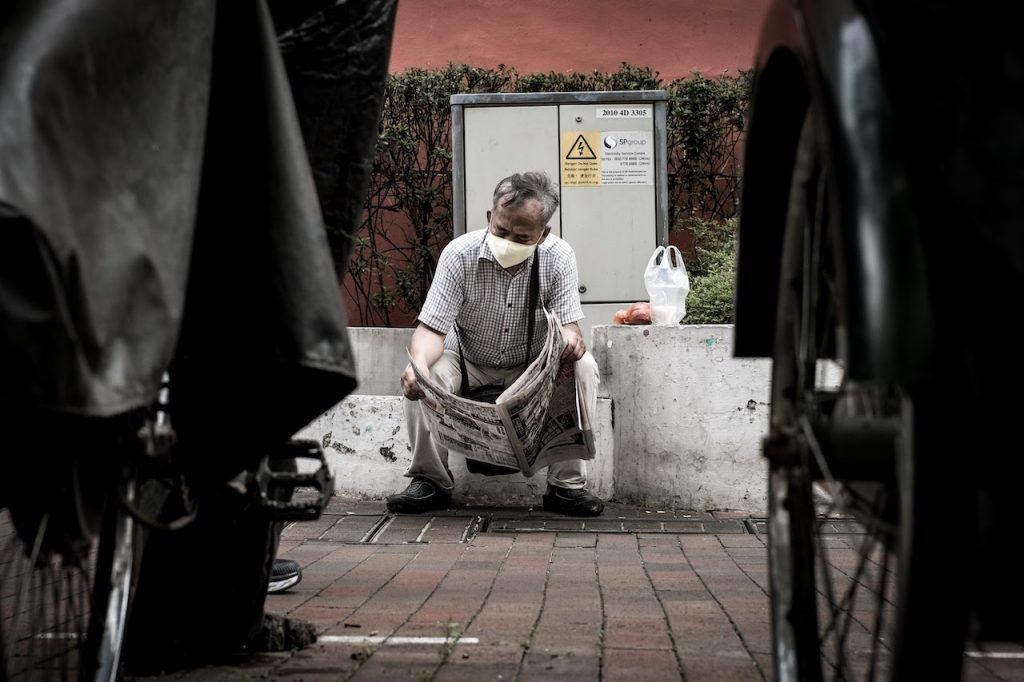
While acknowledging Western ideas and narratives have long been embedded in Singapore, she argues China’s resurgence makes examining Chinese influence more urgent.
“Ethnicity has historically been very fragile in this part of the world. Most of Singapore’s population is ethnic Chinese. As [Ambassador-at-Large] Bilahari said, there’s something very different about the CCP propagating the great rejuvenation of the Chinese nation, which involves ethnic Chinese from all over the world,” she notes. “The US cannot have that same claim here.”
Probing Shibani is an exercise in probing the Singaporean identity. Born and bred in Singapore, she’s highly invested in the way things operate here.
However, the values she developed from Singapore’s environment differed from most. Where political apathy (even cynicism) prevails, Shibani champions ‘flowery’ values like free speech and transparency. Such values inform her work, birthing social media comments accusing her and her work—like her Lianhe Zaobao article—of being “Western” and a “foreign influence”.
Shibani’s interest in examining China’s influence on Singapore began upon returning home while covering the 2019 Hong Kong protests.
“People around us would be like, ‘Oh, these people are unhinged’.” She suspected these narratives parroted CCP talking points.
After asking friends and consulting academics, she learned how Chinese state narratives can be spread through various channels in Singapore: WeChat, WhatsApp, forum posts, cable TV and print media.
Shibani focused on Lianhe Zaobao because it was quantifiable.
Working with the Australian Strategic Policy Institute, an Australian government-linked think tank that declared receiving $1.48 million from the US State Department in 2021-22, The Washington Post could “run a scraper through” Zaobao’s articles for references to pro-China sources.
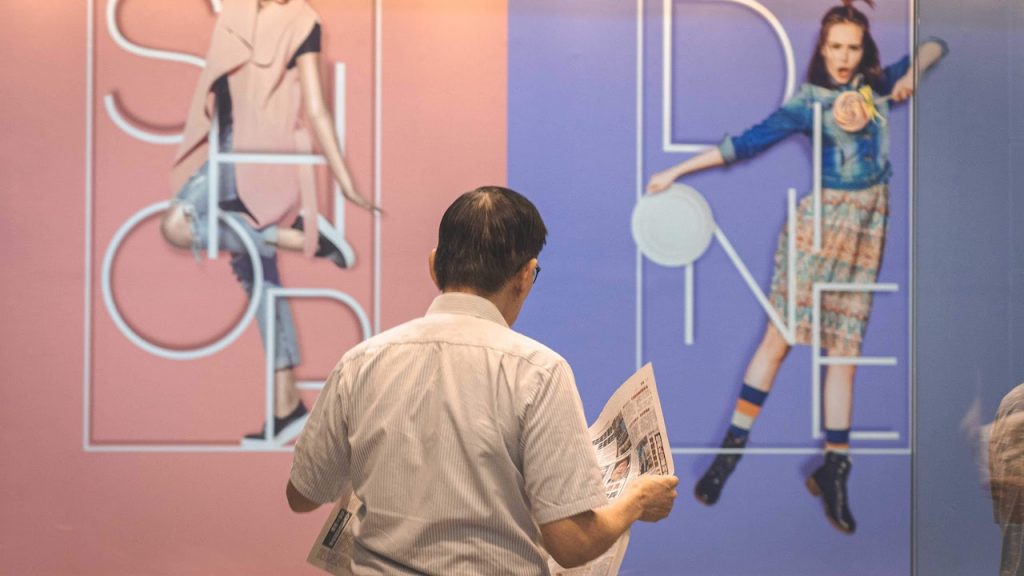
She notes another reason.
“The way Singapore views the media is not as a check and balance but to positively aid national development and discourse. I felt that if it were true that Chinese narratives were seeping in, that would run counter to the Singapore government’s efforts to ensure that our narratives are self-defined and driven by Singapore’s interests.”
A proponent of free speech, she claims pro-China views have a place in Singapore’s media landscape. Her gripe, however, is transparency—publications need to clarify the writer’s affiliations to readers.
“You could not get away with having a US State Department official write for The Straits Times as a neutral analyst.”
A Singaporean, Born and Bred
Her conversations with fellow Singaporeans informed Shibani’s story of Chinese influence in Singapore. It’s far from the first story birthed from her connections here.
“One of the first stories I did—and it remains a story I’m very, very proud of—was writing in the Wall Street Journal about racial discrimination within Singapore’s housing ads. People can—even today—advertise ‘no Indians’ or ‘Chinese preferred’ or ‘light-skin only.'”
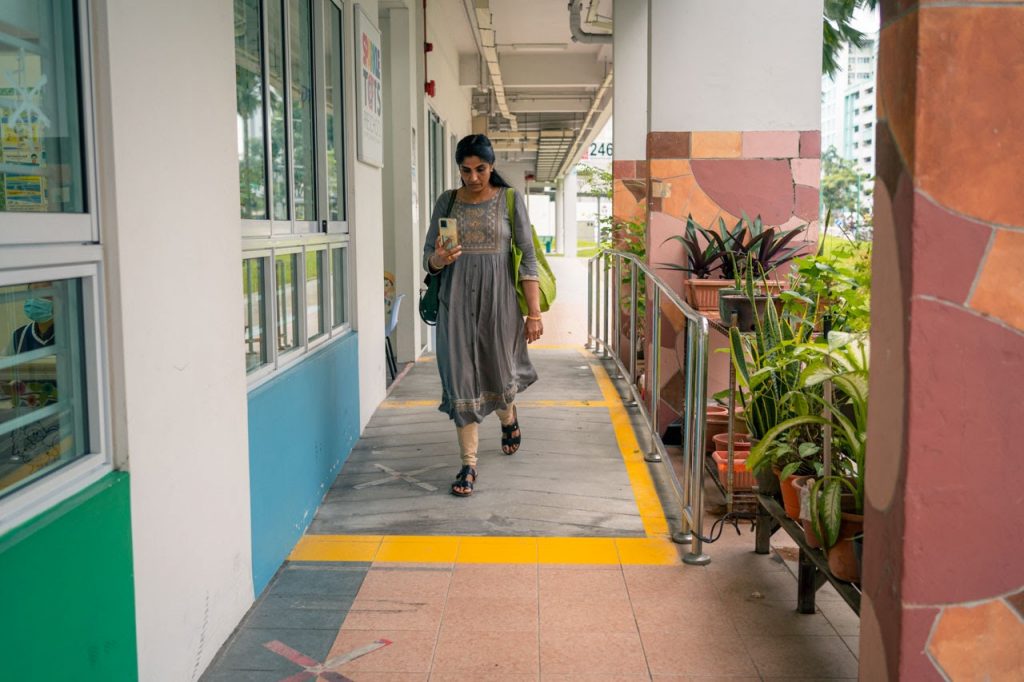
It presented a disconnect from narratives she grew up hearing about Singapore’s racial harmony and the Housing Development Board’s Ethnic Integration Policy preventing ethnic enclaves.
“I don’t know if I would have caught on to that issue if I had not been born and raised here,” she affirms.
Growing up an ethnic minority, she didn’t see her experiences and views validated.
Without social media or alternative media back then, she could only read from The Straits Times or Business Times and what foreigners wrote about Singapore in overseas publications. There was little available discourse divorced from those lenses. Her current endeavours in journalism aim to fill that gap: To present perspectives on Singapore she wasn’t able to read growing up.
Her childhood fascination with travel and language evolved into a fixation on journalism as her political awareness developed.
“I remember the WIRED piece that called Singapore a ‘Disneyland with the death penalty‘”, she says. Reading international coverage of Singapore spurred her to interrogate the place she calls home.
She focused on writing. She contributed to the school paper at Raffles Junior College and became Executive Editor of the student newspaper at the London School of Economics.
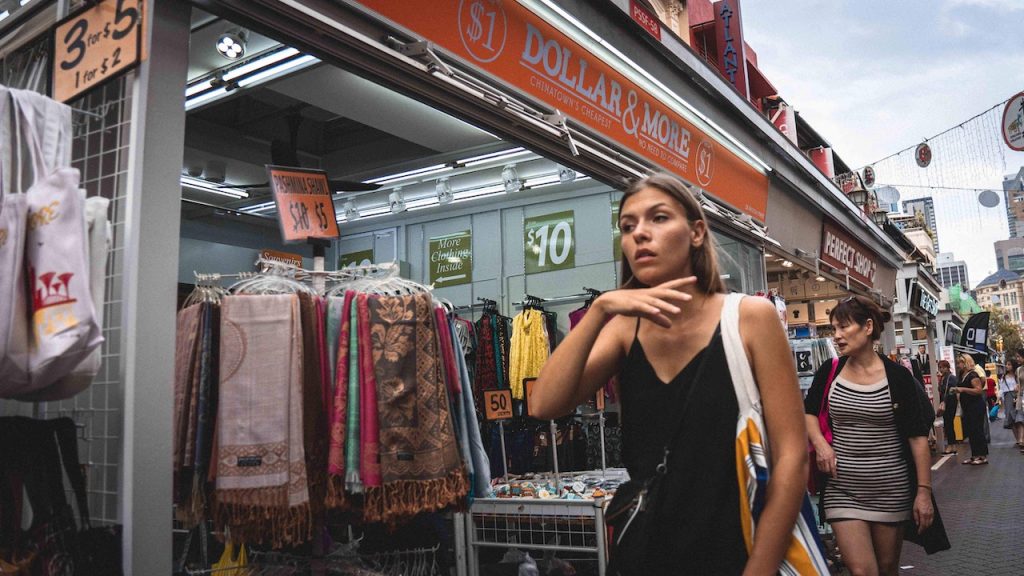
“When I went to grad school [at the Columbia University Graduate School of Journalism in 2010], I wanted to learn how big global news organisations operate. They are much better resourced and offered a more international career, which can be hard to carve out at somewhere like The Straits Times.”
Yet, it felt far-fetched.
“When I started writing for The Wall Street Journal [in 2011], it was rare for them to have non-white, non-Western journalists,” she recalls.
Her opportunity was borne from need: WSJ’s foreign journalists on employment passes got their passes cut.
“So they said okay, instead of hiring foreigners, we should hire Singaporeans.”
Beyond the Bubble
Working in global news organisations meant Shibani was often overseas, starting with Myanmar in 2013. She volunteered for the job—a leap of faith stemming from her interest in Southeast Asia.
Adapting to Yangon, the largest city in Myanmar, was a “crazy experience”. Internet was virtually nonexistent and absurdly priced.
“SIM cards still cost US$150 before the liberalisation of the telecom sector.” She often loitered in the Traders Hotel (now Shangri-La) lobby, trying to connect to decent internet.
For correspondents, living in the country they’re covering gives a valuable taste of life there to inform their perspectives.
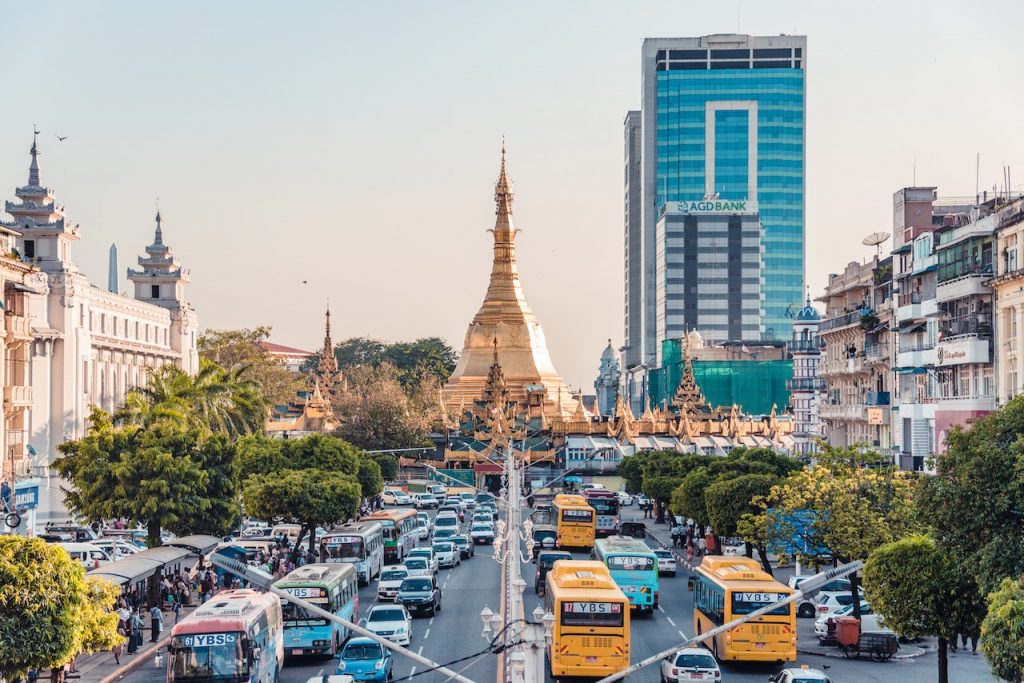
Contrary to places like Hong Kong or Singapore, where expatriates have the ability to somewhat detach from local life, Shibani notes that it was much harder in Yangon circa 2013.
“Living in Yangon is a bit of a bubble [for expatriates], but our issues with the internet were shared [with locals]. If it flooded, everything flooded. If the power cuts, the power cuts for everybody—not to equate; I was a privileged expat, but we lived in a pretty local neighbourhood.”
She regales tales from her travels, recalling the poppy-infested Northern areas of Myanmar, where opium is produced.
“I remember feeling very shaken visiting these shacks, which were treatment centres for recovering addicts. Their eyes were just so hollow and their expressions so blank.”
She remembers interviewing Khin Nyunt, Myanmar’s former Chief of Intelligence—infamous for ruthlessly running the pervasive state security apparatus and cracking down on anyone opposing the regime.
“What a difficult interview, man. Imagine you’re sitting across from someone who you essentially know is a really bad person, for lack of a better word,” she grimaces.
“And you have to smile at them and go: ‘So. About torturing and disappearing people.'”
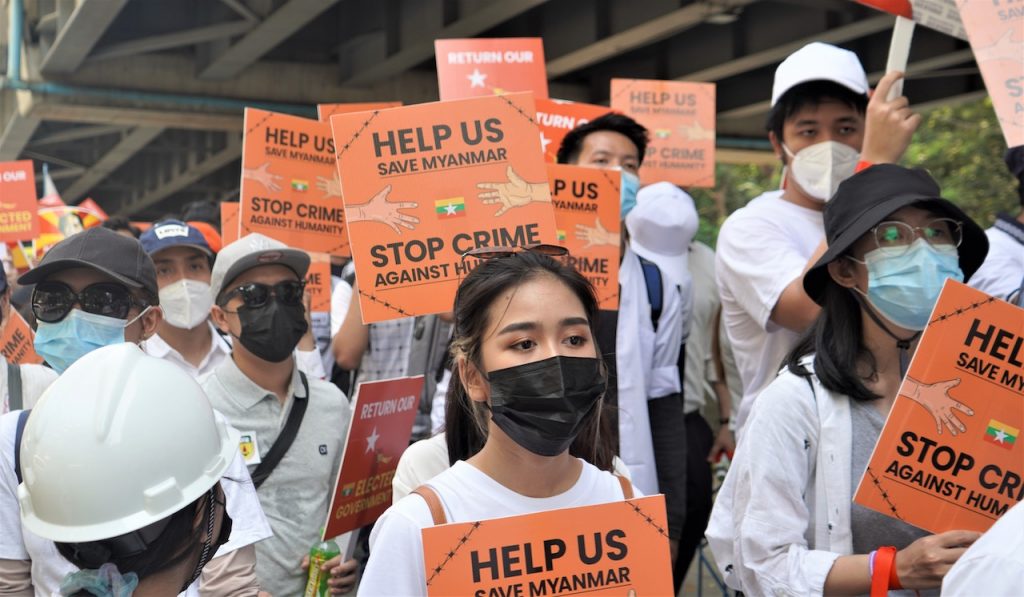
She shudders as she recalls speaking to Aung San Suu Kyi—her toughest interviewee yet. When she tried to press Aung San Suu Kyi on the national economy and internal political party dynamics, Aung San Suu Kyi got angry and refused to talk. Shibani crumpled up internally.
Fighting for Something
Then, there was the time when she covered the Hong Kong protests in 2019.
“It was incredibly fast-moving every weekend. […] Protests were so dispersed. Journalists were in WhatsApp groups together so we could crowdsource or trade info.”
It fell into a routine. Mornings and afternoons were peaceful, while at night, there’d be pockets of radical action like vandalism or police chases.
That soon devolved into chaos. “You didn’t know whether to expect Molotov cocktails being thrown or crackdowns from the police.” That escalation only waned after local elections in November 2019 and the advent of COVID-19.
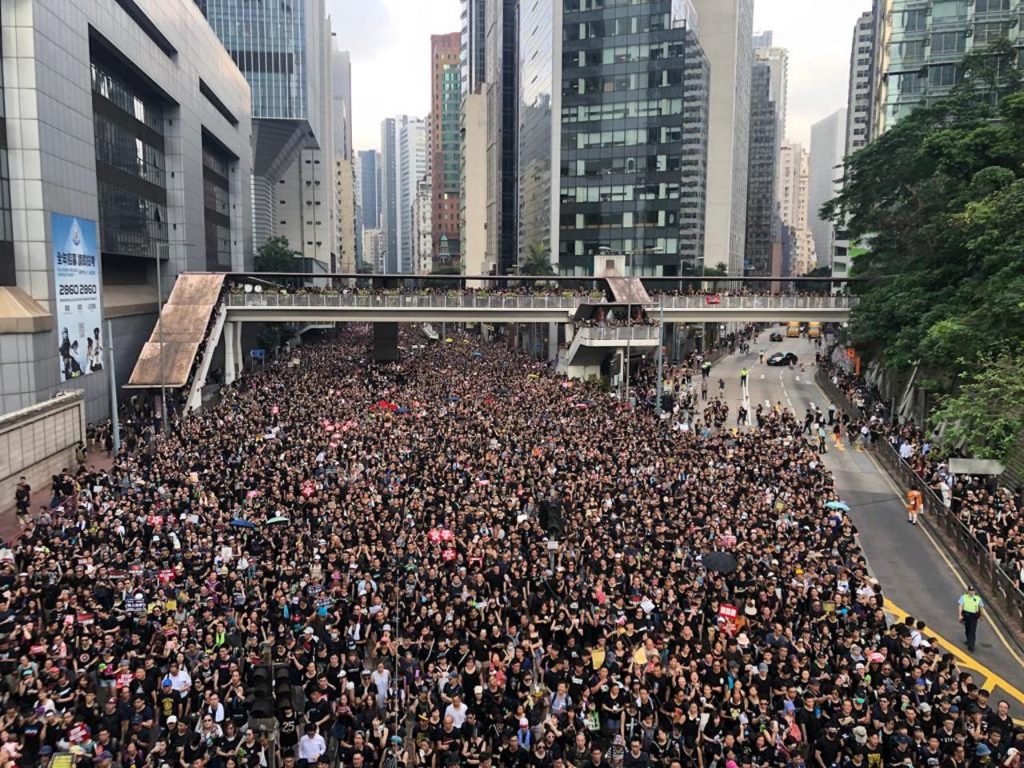
Despite the violence, it was the tender moments that stuck with her. “We would see people helping each other and giving out food and drinks, young couples holding hands and walking through the streets. It was surreal to see those spaces you’d drive down occupied by people sitting and holding hands.”
“You see what it meant to people to be part of a collective and a community fighting for something,” she reminisces. “That stayed with me.”
Journalists aren’t immune to the heightened emotions: “It’s very hard not to be affected by seeing kids beaten up on the street or seeing your friends flee home.”
She tries to channel these emotions into her writing, as with her recently published book, Among The Braves. Co-written with her husband, Timothy McLaughlin, the book explores the Hong Kong pro-democracy movement through the eyes of people on the ground.
“In 2021, when they started mass arresting groups of people, our whole contact list disappeared. We identified a few people [to profile in the book], and they started going to jail, one by one. Local Hong Kong outlets we referenced, like Apple Daily or Stand News, began shutting down.”
She stressed the urgency. “I think the power of the Chinese Communist Party to do this forced mass amnesia has been well-documented post-Tiananmen. If we didn’t do it now, we’d lose the opportunity to put down what we saw in these people’s life experiences.”

‘A Different Approach’
Today, Shibani is back in Singapore after returning home with her husband and Bean, her dog.
“It’s pretty surreal,” Shibani reflects, sipping coffee as her eyes linger on the Singapore skyline. “It feels like we’re in a corner of the world untouched by the insanity everywhere.”
“For all of Singapore’s flaws, we should feel fortunate to have a good, stable and functional government,” Shibani notes.
“In Hong Kong, all people wanted is to vote for their government,” she says. “I’m not saying that stuff like gerrymandering doesn’t exist. Singapore’s not a perfect system, but we still have that right [to vote] many people are fighting for.”
Shibani pauses. “I sometimes wonder if it is valued as much as it should be.”
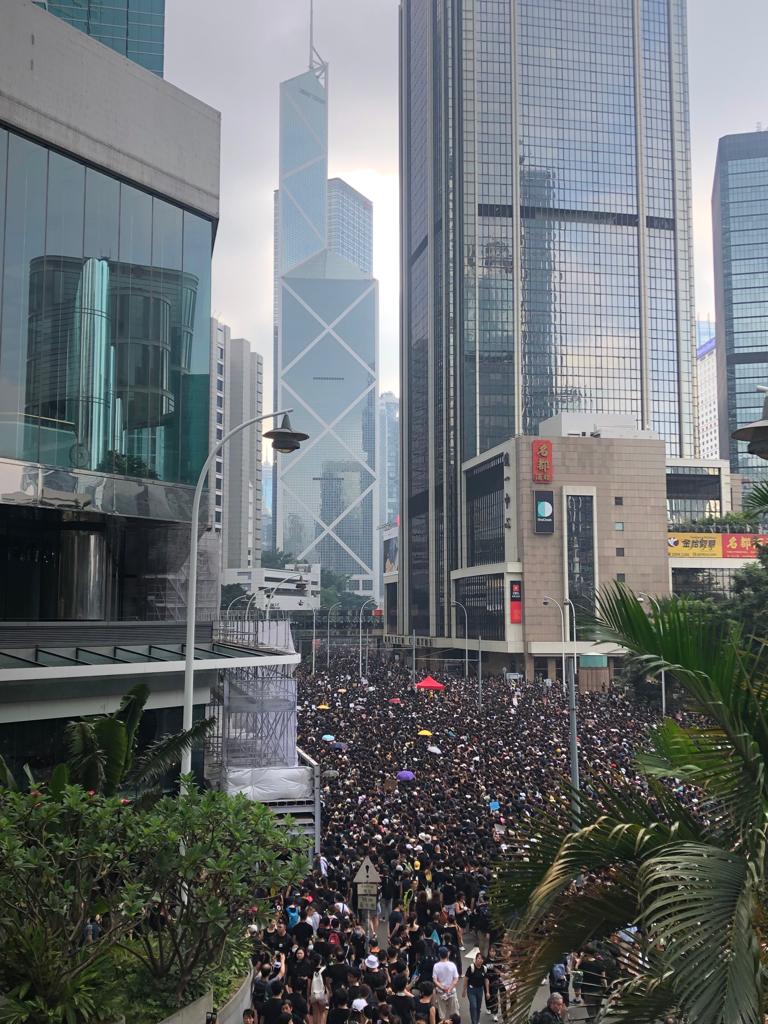
Despite being well-travelled, she doesn’t consider herself an international citizen.
“Being Singaporean is at the heart of everything I do, everything I believe in, and everything I am.”
From Shibani’s perspective, many of her contrasting beliefs are because of her Singaporean experiences “formed in opposition to narratives [she] heard since young”.
Not all her beliefs are oppositional. She attributes positive experiences in Singapore to her strong belief in multiculturalism, the virtues of an open immigration system (relative to other countries), and diversity within our neighbourhoods.
Shibani reflects Singapore’s difficulties balancing a desire to be an open, cosmopolitan city while nurturing a nationalism that, in its quest to unite, may exclude Singaporeans who stray from conventions of how a Singaporean should think or act.
Being critical of these perspectives is one thing. Shunning these viewpoints altogether strangles Singapore’s social diversity and vibrancy of thought.
Those differences in values influence her views on Singaporean journalism. “I don’t want to criticise traditional SPH media, honestly. They inform society on things only they will cover right, like day-to-day concerns of Singaporeans.”
“Perhaps the only point I would make is, generally, I believe journalism should be free of government interference, red lines, and tacit control, but that’s not the way Singapore’s government sees its media; they see it as having a civic role. And that’s just a different approach.”
A Journalist’s Role
In comparison, she recalls, “When I was in the US [between 2016 and 2019], I was highly critical of the Chicago local government, the Chicago Mayor, and the Illinois state government. That’s our role as journalists: To be a check on government.”
This principle also holds in Hong Kong. She rejects claims that her writing, often critical of the Hong Kong government, represents Western influence in a larger East vs West ideological conflict. After all, she scrutinises Western governments using similar criteria, too.
“[Journalists] mean it when we say we want all perspectives,” she says, citing her own extensive interviews with people within the Hong Kong government.
That includes police officers on the ground. “We worked with a local journalist who—this is a true story, and RICE Media fodder—Tinder matched with two cops. When the movement started, she was like, ‘Oh my god. Let me reach out to my Tinder contacts.'”
However, those core disagreements with journalism’s role in Singapore are also why she’s so excited about the burgeoning independent media scene. “I feel like this landscape now is so much more diverse and interesting than I could have imagined in its history.”
After her book tour, she intends to add to that diversity by writing for The Washington Post on topics like trafficking or refugees in Southeast Asia. I ask what sustains her dedication to pure journalism.
“So cheesy, but I’m just interested in hearing people’s stories,” she laughs.
“We can’t escape the confines in which we grew up—the schools we go to, the countries we live in. All that means we interact with only specific subsets or groups of people. The amazing thing about journalism is that all those boundaries don’t exist.”
She’s talked with so many people: Hardcore gun-toting Republicans in Southern Illinois, Rohingya refugees on the Thai border, and millionaires relinquishing everything to support the Hong Kong pro-democracy movement.
“It’s like therapy, I think, for them,” she ponders.
“It’s a testament to how so many people have stories to tell—it’s just about drawing it out.”

